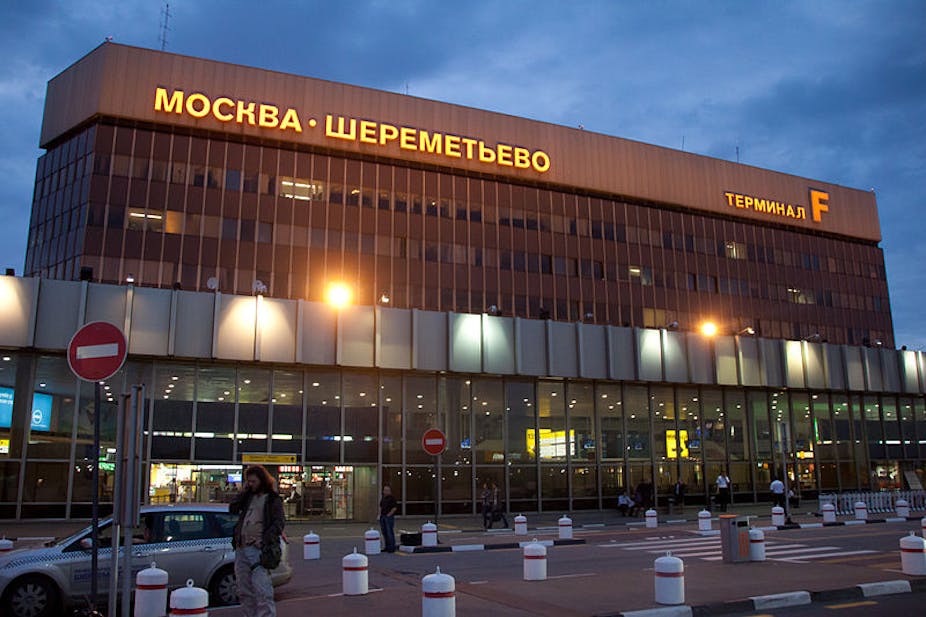Despite the use of virulent anti-Western rhetoric during the 2011-12 presidential campaign and the subsequent protests, Vladimir Putin has been careful not to push himself out on a limb from which it would be difficult to retreat.
Despite the Russian regime’s visceral fear that Western powers would use popular protest and NGOs as vehicles to achieve regime change in Russia, along the tried and tested model of Slobodan Milosevic’s overthrow in Serbia in 2000, this did not mean creating a “fortress Russia” on the Soviet model.
This balancing act is most clear over Edward Snowden, now released from Sheremetyevo Airport’s transit zone after being granted temporary asylum in Russia. The former National Security Agency official revealed the enormous scale of British and American surveillance of the population, including intercepts of electronic communications and the bugging of German and other embassies and agencies. Snowden revealed secret rulings by a secret US court, where judges turned down only 10 surveillance warrants between 2001 and 2012, while granting 20,909.

When Snowden landed in Moscow from Hong Kong in June 2013, he was not allowed out of Sheremetyevo airport. America demanded his extradition to face criminal charges, whereas human rights and international law activists insisted that he was acting in what he thought was the public interest, and thus enjoyed the rights conventionally bestowed on whistleblowers.
As a former security official whose credo was based on loyalty, Putin took a dim view of Snowden’s activities and refused to use the case as a stick with which to beat America. Although he did not wish to harbour Snowden, giving him up would look like weakness and capitulation to American demands. Putin was caught in a trap not of his making, and sought to reassure the Americans that even if Snowden stayed in Russia, he would not be allowed to endanger US interests.
Offers of asylum in Latin American countries faced the logistical difficulty of getting him out. The forcing down in July of the plane of Bolivian president Evo Morales over European air space, on his way back from the G20 summit in Moscow, can effectively be described as an act of international piracy.

As the human rights lawyer Geoffrey Robertson notes about the various conventions defending the freedom to traverse international air space: “America tends to treat international law as binding to everyone except America”.
Putin’s hand forced
In that context, there was almost nothing else that Putin could do but offer temporary asylum. The hope will be that after a year some negotiated solution can be found that would rid Russia of its unwelcome guest. The guilty finding on Bradley Manning on July 30 and the punitive sentence that is anticipated that could see the Wikileaks whistleblower spend most of the rest of his life in jail, forced the Russian hand. Even though the US authorities have promised that Snowden would not face the death penalty in America, this is little cheer to those who consider that he has done the world a public service.
It should be stressed that there is enormous popular support for Snowden, not just among European public opinion, shocked by the intrusive transgressions of British and American surveillance agencies, but also in Russia.
There is no doubt that Russia’s decision will be greeted by virulent broadsides in America. Already there have been disgraceful suggestions that the Sochi Winter Olympics, due to start in February 2014, should be boycotted. One can anticipate that such calls will multiply now.
Russia will attempt to play down the significance of Snowden’s temporary asylum, and Putin will hope that this will not further damage Russo-American relations. Putin has made it clear that there are good reasons for its policies, including over the Syrian crisis, rooted in genuine security concerns and views.
He has never been as anti-Western as sometimes portrayed in the liberal press. Russia does not have the slightest interest in a “new reset”; but it does want a productive relationship based on respect for mutual interests. It will be to the advantage of all sides for this view to be respected.

